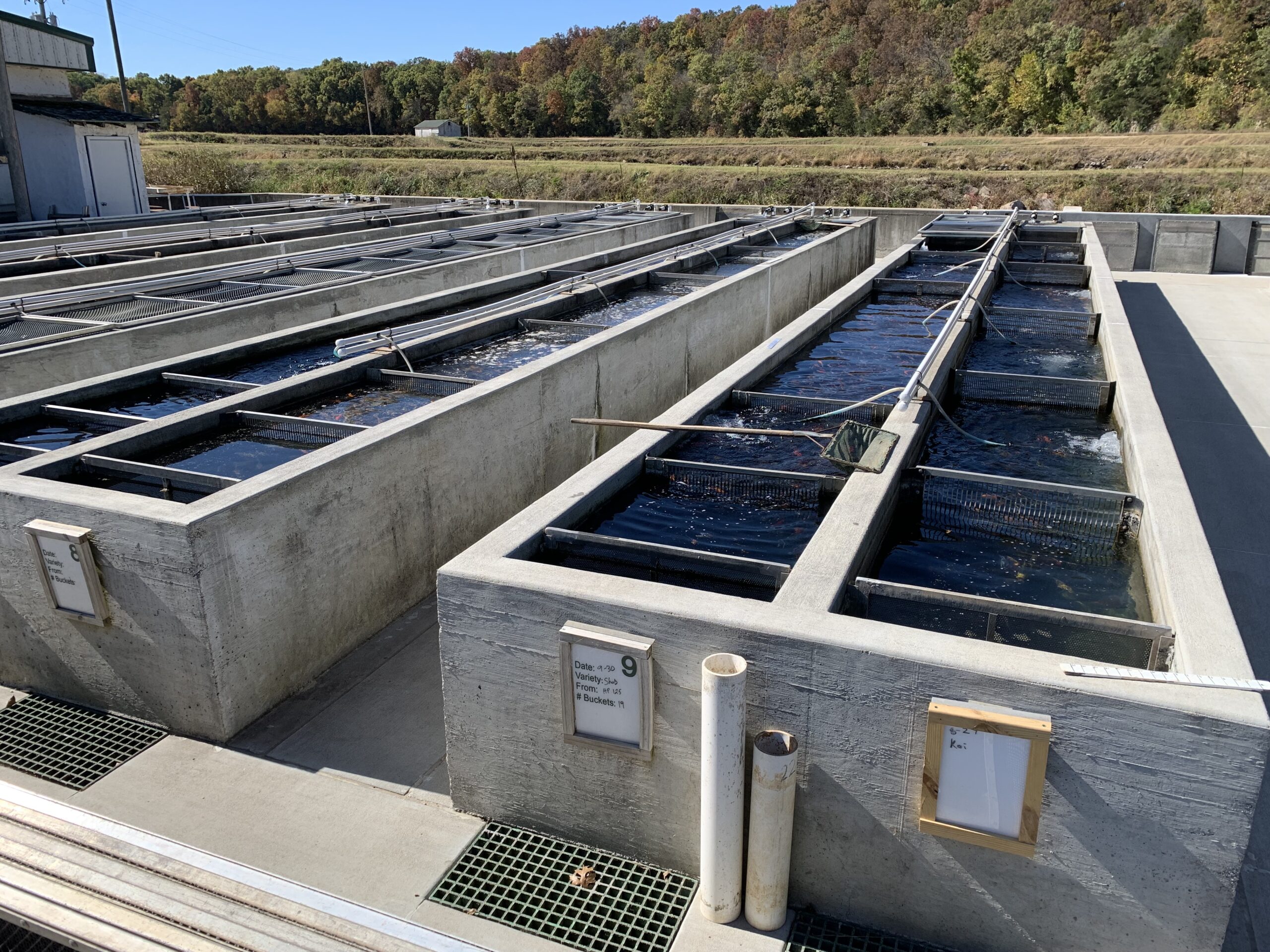Successful fish farming in Missouri depends on identifying market niches

COLUMBIA, Mo. — Successful fish farming in Missouri depends on identifying and serving market niches, according to an updated guide from University of Missouri Extension.
In a press release, Ryan Milhollin, MU Extension agribusiness management specialist, said, “There are a lot of successful aquaculture businesses in Missouri. Each business has found its market niche.”
The MU Extension needs assessment survey shows Missouri’s aquaculture industry contains many diverse businesses. Twenty active aquaculture businesses participated in MU Extension’s 2023 survey, with a 70% response rate. In 2022, respondents produced 46 species with bluegill and largemouth bass the most common.
Four in five Missouri aquaculture producers said they sell fish for pond stocking, and 43 percent sell fish to food markets. The most common market channel is direct-to-consumer sales, followed by sales to other aquaculture producers. Producers said they are concerned about earning sustainable profits because input costs are rising faster than the prices they charge buyers. Despite these concerns, however, 78% of respondents said aquaculture producers have growing market opportunities.
While aquaculture operations in the state can be profitable, there are challenges and advantages to farming fish in Missouri, such as a need for scale advantage to enable low-cost warm-water species production, according to David Brune, MU Extension ag engineering professor. He said there’s also a lack of scale advantage for producing cold-water species in raceway systems. Additionally, Missouri aquaculture is heavily regulated to protect waters from invasive species and pests.
Aquaculture advantages in Missouri include good-quality water in many areas, centralized location and proximity to large U.S. consumer markets.
“Because of a shorter growing season, aquaculture production costs in Missouri are typically higher than southern U.S. production costs,” said Brune. “Consequently, to ensure profitability, Missouri fish farmers typically raise and sell higher-value products, such as shrimp, ornamentals, baitfish or fish for stocking of recreational ponds and lakes, or they sell food fish directly to consumers.”
One of the oldest aquaculture businesses in Missouri that found its niche and has grown through the years is Ozark Fisheries. Margaret Cleveland, a fourth-generation fish farmer, works with her father and brother managing the 98-year-old ornamental aquaculture business with farms in Stoutland, Mo., and Martinsville, Ind.
“We raise and ship goldfish and koi year-round,” said Cleveland, a graduate of the MU College of Agriculture, Food and Natural Resources.
The company has succeeded through many challenges and changes.
“When bulky metal cans became unreliable, our company created a boxed method of shipping fish that delivers them in no more than 24 hours, and the aquaculture industry has adopted that method,” said Cleveland. “In addition, it is helpful having two farm locations. Our Indiana farm, which was acquired in 1970, was able to send out all shipments when we experienced flooding in May 2022 at our Missouri farm.”
Their ornamental fish business saw an increase in sales as the 2020 pandemic continued, according to Cleveland. She said Ozark Fisheries is fortunate to have a succession plan in place. If there are no family members taking over the operation, she recommends aquaculture farmers mentor aspiring farmers with an interest in fish farming to ensure demand is met in the future.
Brune said MU Extension has benefited from Ozark Fisheries, which has been willing to share lessons learned and help extension with its aquaculture studies and connect with others in the aquaculture industry. “Margaret has been a great asset to us,” said Brune.
“One thing we encourage people looking at aquaculture is to conduct some due diligence/feasibility work before making any final decisions,” said Milhollin.
“Carefully evaluating market channels and making sure there is demand/buyers for their products is important for a new business,” he added. “If opportunities exist, then look into the cost of production, infrastructure needs and management skills necessary to be successful at raising fish or aquaculture products.”
MU Extension’s newly updated guide “Planning for an Aquaculture Business in Missouri” is available free online at https://extension.missouri.edu/g9469.
Miss Clipping Out Stories to Save for Later?
Click the Purchase Story button below to order a print of this story. We will print it for you on matte photo paper to keep forever.

